
Tsumeb: Gateway to Namibia's Natural Wonders
Tsumeb is a charming town in northern Namibia, known for its rich mining history and vibrant cultural scene. As the gateway to the Etosha National Park, Tsumeb offers an excellent starting point for wildlife enthusiasts and nature lovers. The town's lush green parks and tree-lined streets provide a refreshing contrast to Namibia's arid landscapes, making it a unique destination for travelers. Tsumeb's history is deeply intertwined with mining, and the Tsumeb Mine is one of the richest mineral mines in the world. Visitors can explore the Tsumeb Museum, which showcases fascinating exhibits on the town's mining heritage and the diverse minerals found in the area. The museum also features displays on the local culture and history, offering a comprehensive insight into Tsumeb's past. For those interested in outdoor activities, Tsumeb has plenty to offer. The nearby Lake Otjikoto, a rare sinkhole lake, is perfect for a day trip. It is not only a beautiful natural wonder but also a historical site, with remnants of German artillery from World War I submerged in its depths. Additionally, the town's close proximity to Etosha National Park allows visitors to easily embark on safari adventures, where they can witness Namibia's incredible wildlife in their natural habitat.
Local tips in Tsumeb
- Visit the Tsumeb Museum to learn about the town's mining heritage and local history.
- Take a short trip to Lake Otjikoto for a unique natural and historical experience.
- Plan a safari to Etosha National Park for a chance to see Namibia's diverse wildlife.
- Enjoy the town's green parks and tree-lined streets for a relaxing stroll.
- Try local Namibian cuisine at one of Tsumeb's restaurants for an authentic taste of the region.
Tsumeb: Gateway to Namibia's Natural Wonders
Tsumeb is a charming town in northern Namibia, known for its rich mining history and vibrant cultural scene. As the gateway to the Etosha National Park, Tsumeb offers an excellent starting point for wildlife enthusiasts and nature lovers. The town's lush green parks and tree-lined streets provide a refreshing contrast to Namibia's arid landscapes, making it a unique destination for travelers. Tsumeb's history is deeply intertwined with mining, and the Tsumeb Mine is one of the richest mineral mines in the world. Visitors can explore the Tsumeb Museum, which showcases fascinating exhibits on the town's mining heritage and the diverse minerals found in the area. The museum also features displays on the local culture and history, offering a comprehensive insight into Tsumeb's past. For those interested in outdoor activities, Tsumeb has plenty to offer. The nearby Lake Otjikoto, a rare sinkhole lake, is perfect for a day trip. It is not only a beautiful natural wonder but also a historical site, with remnants of German artillery from World War I submerged in its depths. Additionally, the town's close proximity to Etosha National Park allows visitors to easily embark on safari adventures, where they can witness Namibia's incredible wildlife in their natural habitat.
When is the best time to go to Tsumeb?
Iconic landmarks you can’t miss
Kupferquelle Resort
Discover the serene beauty of Kupferquelle Resort in Tsumeb, Namibia, where relaxation meets adventure in a luxurious setting.

Minen Hotel
Experience comfort and local charm at Minen Hotel in Tsumeb, the perfect base for exploring Namibia's vibrant culture and stunning landscapes.
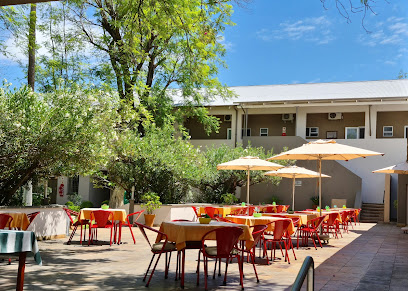
Makalani Hotel
Discover the charm of Tsumeb while enjoying a cozy stay at Makalani Hotel, your perfect base for exploring Namibia's natural beauty.

Villa Africa Gueshouse & Tsumeb Backpackers
Discover the charm of Tsumeb at Villa Africa Guesthouse, where comfort meets local culture in the heart of Namibia's breathtaking landscapes.
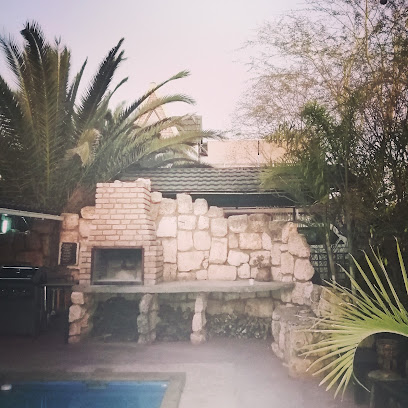
Tsumeb Mall
Experience local shopping at Tsumeb Mall in Windhoek, where you can find fresh produce, local delicacies, and everyday essentials in a vibrant atmosphere.
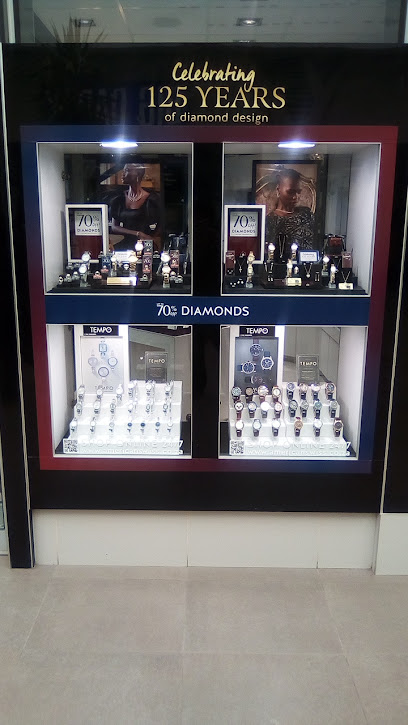
Travel North Guesthouse
Experience the warmth of Northern Namibia at Travel North Guesthouse, your cozy retreat in Tsumeb for unforgettable adventures.
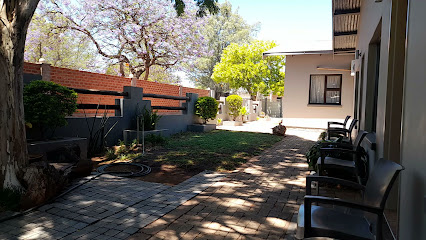
Small Money Pub
Discover the vibrant atmosphere of Small Money Pub in Tsumeb, where local brews and delicious bites create unforgettable experiences.
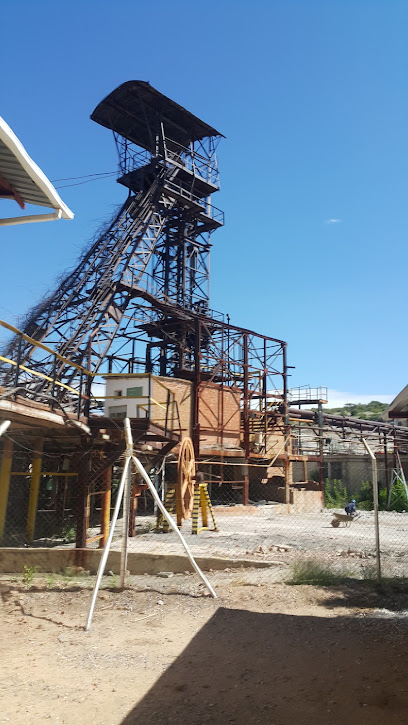
Tsumeb Guest House Kamho
Discover comfort and local charm at Tsumeb Guest House Kamho, your ideal retreat in the heart of Tsumeb, Namibia, perfect for travelers and adventurers.

Oshikoto Maroela Restcamp
Discover the serene beauty of Oshikoto Maroela Restcamp, your ideal self-catering accommodation in the heart of Namibia's stunning landscapes.

Tsumeb namibia
Explore Tsumeb, Namibia – a vibrant town where rich history meets an emerging music scene, offering visitors a unique cultural experience.

Haus Mopanie
Discover the warmth of Namibian hospitality at Haus Mopanie, your charming bed & breakfast in Tsumeb, with cozy accommodations and local charm.

Tsumeb Golf Club
Explore Tsumeb Golf Club, where stunning landscapes meet a challenging golf course in the heart of Namibia's natural beauty.
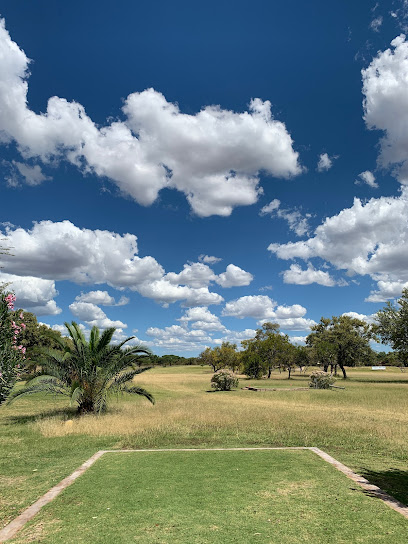
Tsumeb Museum
Discover the fascinating history and mineral wealth of Tsumeb at the Tsumeb Museum, a cultural gem in Namibia.
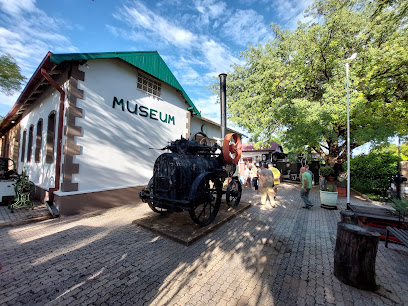
Helvi Mpingana Kondombolo Cultural Village
Explore the vibrant heritage of Namibia at Helvi Mpingana Kondombolo Cultural Village, a unique cultural museum and event venue in Tsumeb.
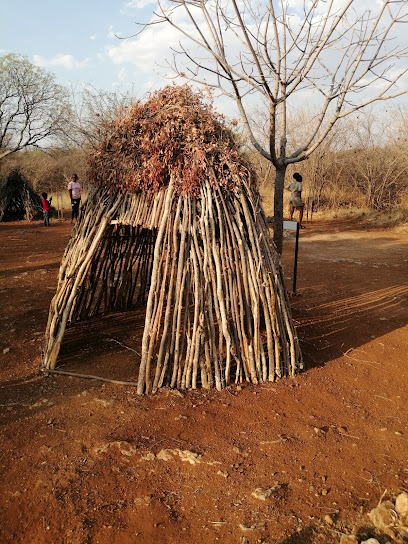
Anglican Church
Discover the tranquil beauty and rich cultural heritage of Tsumeb at the historic Anglican Church, a serene escape for travelers and locals alike.
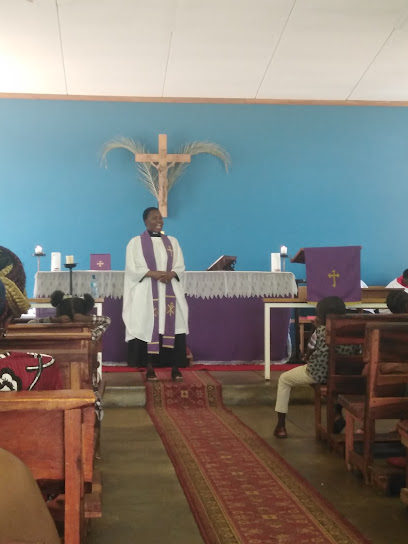
Unmissable attractions to see
United Nations Park
Explore United Nations Park in Tsumeb – a serene green escape perfect for picnics, leisurely walks, and immersing in local culture amidst nature's beauty.
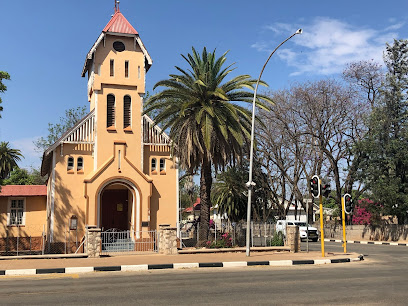
Tsumeb Museum
Explore Tsumeb Museum: A vibrant showcase of Tsumeb's cultural heritage and remarkable mining history, perfect for curious travelers and history lovers alike.
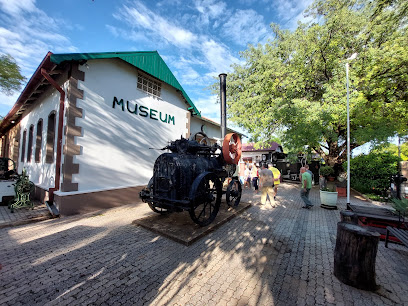
Helvi Mpingana Kondombolo Cultural Village
Explore the heart of Namibian culture at Helvi Mpingana Kondombolo Cultural Village, where traditions come alive and memories are made.
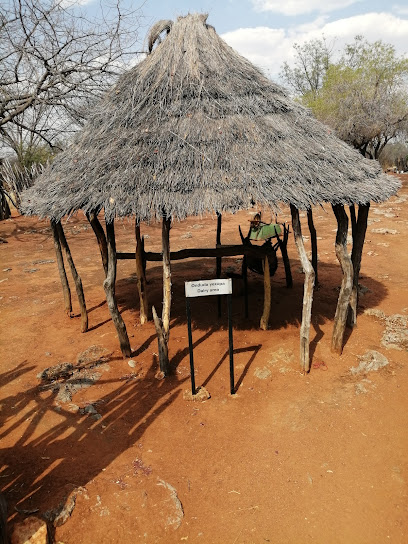
Muteka's Park
Muteka's Park in Tsumeb, Namibia, offers a serene escape with lush greenery, perfect for picnics, family outings, and nature walks.
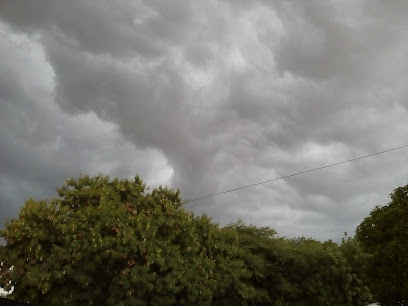
Tsumeb Mineralogic & Mining Museum
Explore the captivating history of mining and geology at the Tsumeb Mineralogic & Mining Museum, a treasure trove of natural wonders.
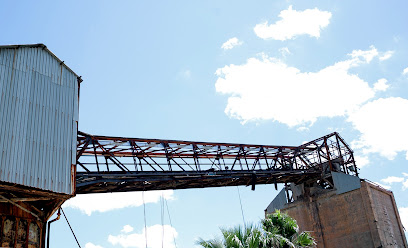
Essential places to dine
Kupferquelle Resort
Discover serenity at Kupferquelle Resort - where luxury meets nature in Tsumeb's breathtaking landscapes.

Minen Hotel
Discover comfort at Minen Hotel in Tsumeb - your gateway to Namibian adventures with cozy accommodations and warm hospitality.
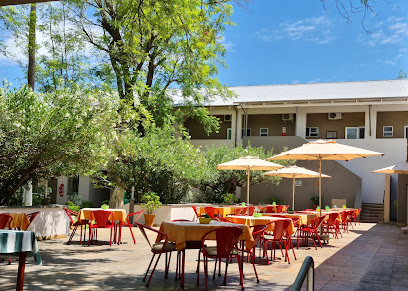
KFC Tsumeb
Experience delicious comfort food at KFC Tsumeb; where fast food meets Namibian hospitality!
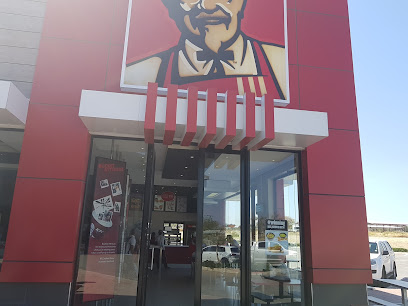
Villa Africa Gueshouse & Tsumeb Backpackers
Experience comfort and community at Villa Africa Guesthouse & Tsumeb Backpackers – your ideal base for exploring Namibia's cultural gems.
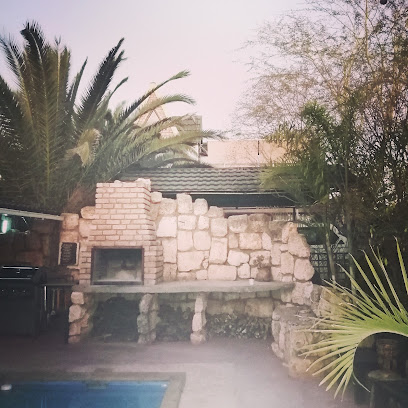
Travel North Guesthouse
Experience warmth and hospitality at Travel North Guesthouse in Tsumeb, Namibia - your gateway to adventure in northern Namibia.
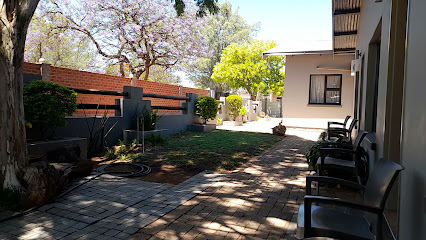
Small Money Pub
Discover the lively atmosphere of Small Money Pub in Tsumeb – your go-to destination for refreshing drinks and local camaraderie.
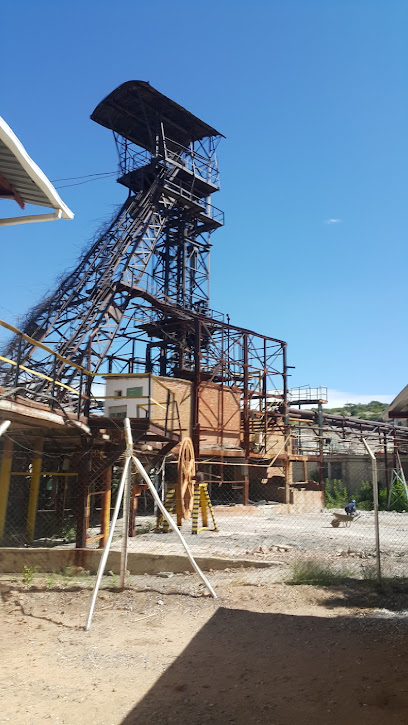
Tsumeb Guest House Kamho
Discover comfort and hospitality at Tsumeb Guest House Kamho - your perfect base for exploring Tsumeb's rich culture and natural beauty.

Sonja's Kitchen
Experience authentic Namibian cuisine at Sonja's Kitchen in Tsumeb – where every meal tells a story.
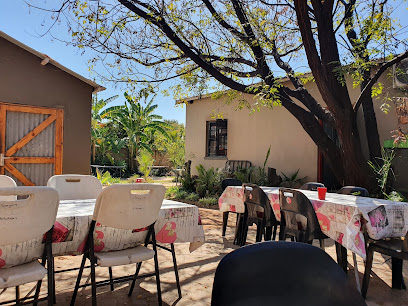
Oshikoto Maroela Restcamp
Experience tranquility at Oshikoto Maroela Restcamp in Namibia – your perfect self-catering retreat amidst stunning landscapes.

Tate Tommy's Kapana
Experience authentic Namibian cuisine at Tate Tommy's Kapana – where local flavors meet a vibrant atmosphere.
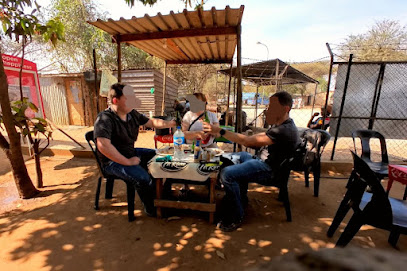
Haus Mopanie
Discover the warmth of Namibian hospitality at Haus Mopanie, your perfect retreat in Tsumeb.

The Coffee Box
Discover The Coffee Box in Tsumeb: Your go-to destination for premium brews and a relaxing atmosphere.
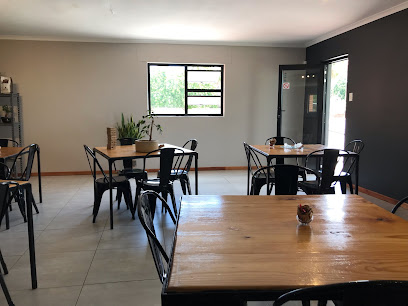
Wimpy
Experience delicious fast food at Wimpy in Tsumeb – where quality meets convenience.
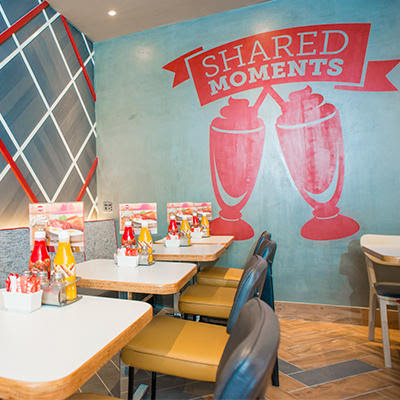
Steinbach Beergarden & Coffee Shop
Discover the flavors of Namibia at Steinbach Beergarden & Coffee Shop in Tsumeb - where good food meets great ambiance.
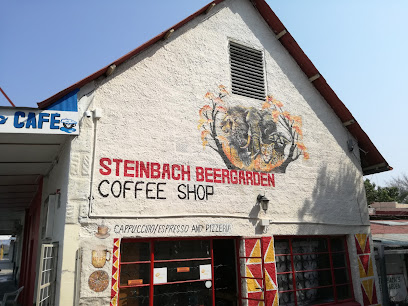
Hungry Lion Tsumeb
Discover the flavorful world of Hungry Lion Tsumeb - where crispy fried chicken meets fast-food convenience in Namibia's vibrant shopping scene.
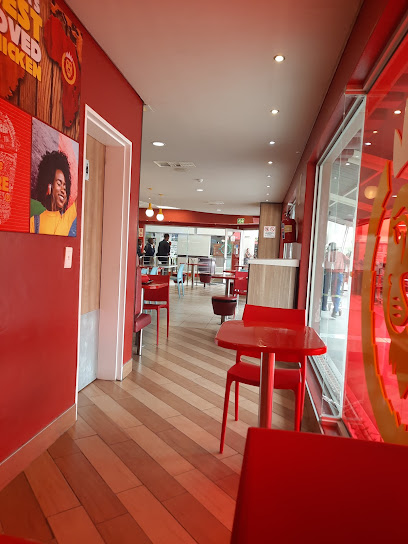
Markets, malls and hidden boutiques
Pick n Pay
Explore the vibrant Pick n Pay in Tsumeb for a blend of local flavors and essential shopping convenience.
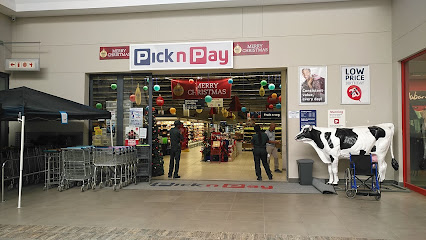
Shoprite Tsumeb
Explore the vibrant offerings at Shoprite Tsumeb, your go-to supermarket for local and international products in Namibia.
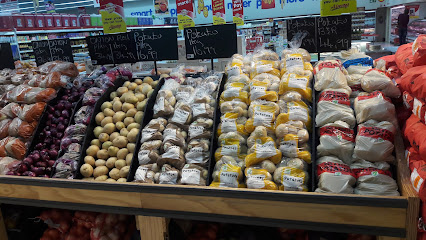
Tsumeb Mall
Discover Tsumeb Mall: Your one-stop shopping destination in Namibia, blending local culture with diverse retail experiences.
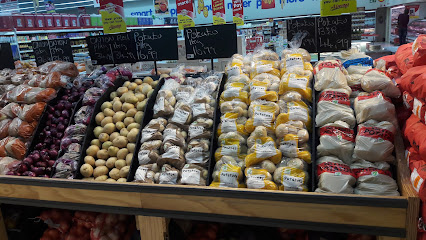
Kierie’s Farmhouse & Deli Shop
Experience the essence of Namibian flavors at Kierie’s Farmhouse & Deli Shop, where local produce meets artisanal craftsmanship in Tsumeb.

WB Supermarkets Tsumeb
Discover the vibrant flavors of Namibia at WB Supermarkets Tsumeb, where local delicacies and fresh produce await every traveler.
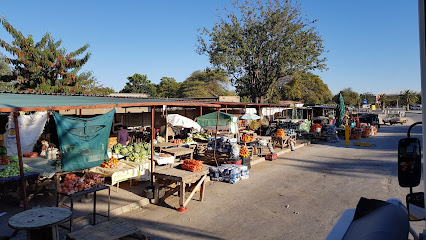
Waltons Tsumeb
Discover Waltons Tsumeb, your one-stop shop for quality stationery and school supplies in the heart of Namibia.
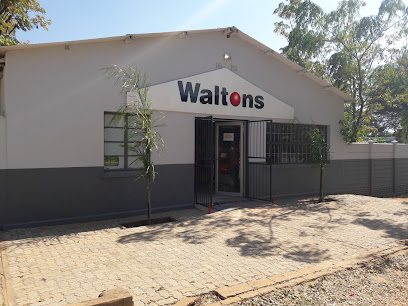
The Crazy Store Tsumeb
Discover a unique shopping experience at The Crazy Store Tsumeb, offering a wide array of gifts, toys, and home goods for all ages.

Le Platz Shopping Centre
Discover the heart of Tsumeb at Le Platz Shopping Centre, where shopping meets local culture in a vibrant atmosphere.
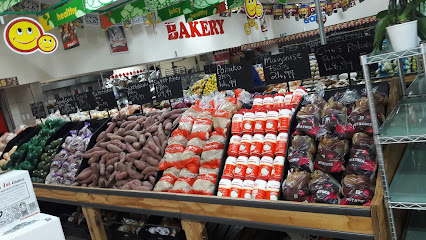
Ackermans Tsumeb
Discover fashionable clothing for women and children at Ackermans Tsumeb, where style meets affordability in the heart of Namibia.

Lewis Tsumeb
Explore Lewis Tsumeb for a diverse selection of stylish furniture, home goods, and appliances in the heart of Tsumeb, Namibia.
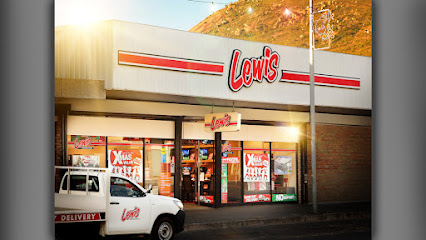
Mr Price / MRP
Discover stylish and affordable fashion at Mr Price in Tsumeb, where contemporary trends meet Namibian flair.

PEP Tsumeb 789 on Main
Explore affordable fashion for the whole family at PEP Tsumeb 789 on Main, the ultimate clothing destination in Tsumeb, Namibia.
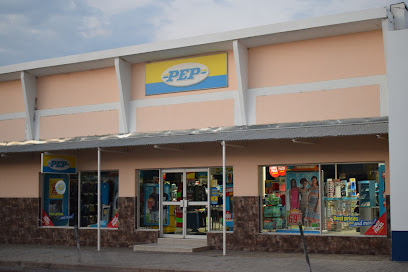
OK Furniture Tsumeb
Explore OK Furniture Tsumeb for stylish, affordable furnishings and a taste of local craftsmanship – a must-visit for tourists seeking unique decor.
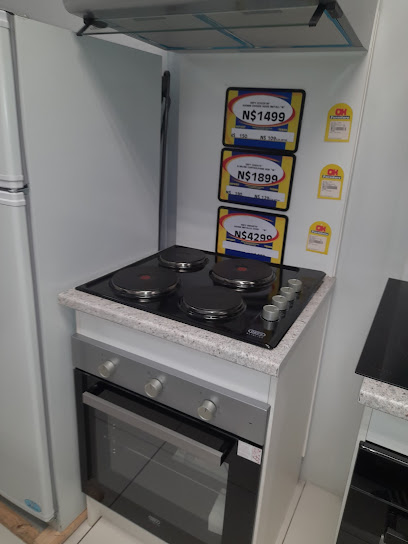
Jet Tsumeb Mall - Tsumeb
Experience the vibrant shopping scene at Jet Tsumeb Mall, where contemporary fashion meets local culture in the heart of Tsumeb, Namibia.
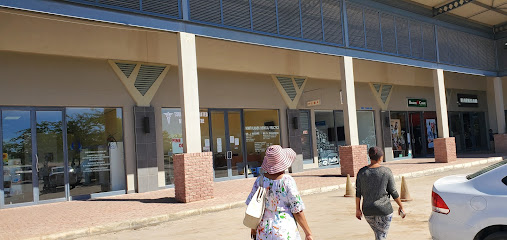
Die Ark Pet Shop
Explore Die Ark Pet Shop in Tsumeb for a delightful selection of pets and supplies, all in a friendly and knowledgeable environment.
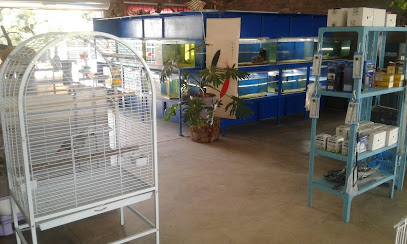
Essential bars & hidden hideouts
Pongo's Nightlife Bar
Discover the vibrant nightlife at Pongo's Nightlife Bar in Tsumeb, where friendly faces and great drinks await you in a lively atmosphere.
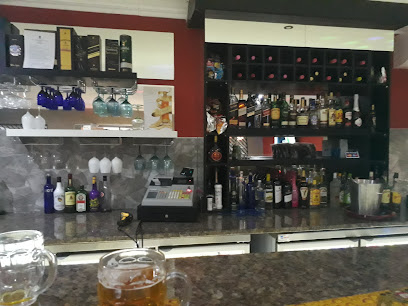
Small Money Pub
Experience the lively nightlife of Tsumeb at Small Money Pub – the perfect spot for drinks, music, and meeting locals.
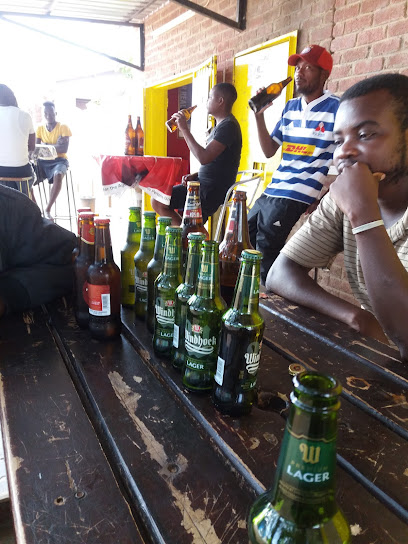
Steinbach Beergarden & Coffee Shop
Discover the local flavors and cozy ambiance at Steinbach Beergarden & Coffee Shop in Tsumeb, a perfect spot for relaxation and culinary delight.
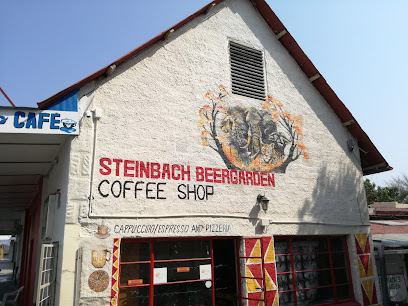
Namibia Night Club
Discover the vibrant nightlife at Namibia Night Club, where music, dancing, and a lively atmosphere come together for an unforgettable evening.

Cozzi Tavern
Experience the warm ambiance and local flavors at Cozzi Tavern, Tsumeb's cozy lounge for relaxation and enjoyment.
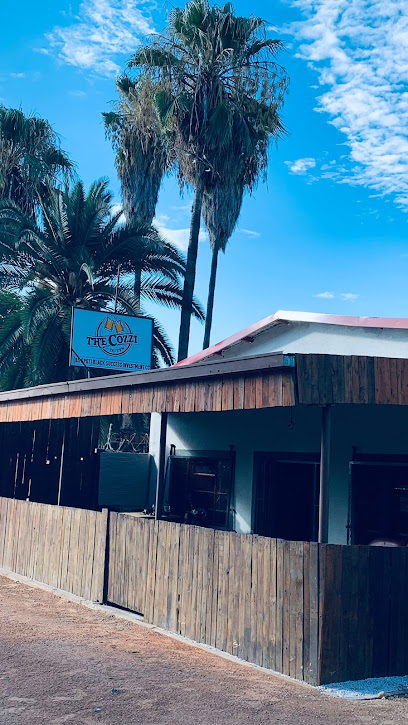
The Patriot Bar
Discover the vibrant nightlife at The Patriot Bar in Tsumeb, offering delicious drinks and a lively atmosphere for locals and tourists alike.
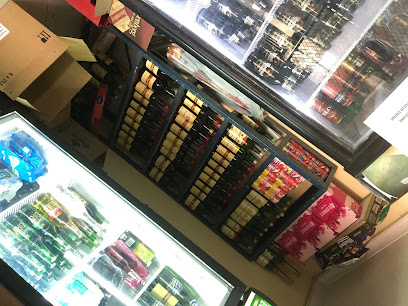
Sekelbos
Experience the vibrant atmosphere and delicious cuisine at Sekelbos, a top bar in Tsumeb, perfect for tourists and locals alike.

Malinda Bar
Experience the vibrant atmosphere of Malinda Bar in Tsumeb, where locals and travelers gather for drinks, music, and unforgettable memories.

224 BAR
Experience the lively nightlife at 224 BAR in Tsumeb, a welcoming spot for drinks, laughter, and local culture.

MZANZI LOUNGE
Discover the lively atmosphere and local flavors at Mzansi Lounge, a must-visit bar in Tsumeb for an unforgettable night out.

Tsumeb Flying Club
Experience the thrill of aviation while enjoying a refreshing drink at Tsumeb Flying Club, a hidden gem in Namibia's scenic Tsumeb.

Imbizo Lounge
Discover the vibrant ambiance of Imbizo Lounge in Tsumeb, Namibia, where relaxation meets local culture in a cozy setting.

Legends Bar & Steakhouse
Experience the best of Tsumeb dining at Legends Bar & Steakhouse, where delicious steaks meet a lively bar atmosphere.

Mbwales Pub
Discover the lively ambiance and local flavors at Mbwales Pub, Tsumeb's favorite bar for an authentic Namibian experience.

Toli Tokini
Discover the vibrant nightlife at Toli Tokini, a lively bar in Tsumeb offering a unique blend of local and international beverages.

Local Phrases
-
- HelloHallo
[ha-llo] - GoodbyeTotsiens
[toh-tsiens] - YesJa
[yah] - NoNee
[nee] - Please/You're welcomeAsseblief
[ah-seh-bleef] - Thank youDankie
[dahn-kee] - Excuse me/SorryJammer
[yah-mer] - How are you?Hoe gaan dit?
[hu gahn dit] - Fine. And you?Goed. En jy?
[khoot. en y] - Do you speak English?Praat jy Engels?
[praht y en-ghels] - I don't understandEk verstaan nie
[ehk fer-stahn nee]
- HelloHallo
-
- I'd like to see the menu, pleaseEk wil asseblief die spyskaart sien
[ehk vil ah-seh-bleef dee spees-kahrt seen] - I don't eat meatEk eet nie vleis nie
[ehk ayt nee flays nee] - Cheers!Gesondheid!
[ghuh-sund-hyte] - I would like to pay, pleaseEk wil asseblief betaal
[ehk vil ah-seh-bleef bay-tahl]
- I'd like to see the menu, pleaseEk wil asseblief die spyskaart sien
-
- Help!Help!
[help] - Go away!Gaan weg!
[ghahn vekh] - Call the Police!Bel die Polisie!
[bel dee poh-lee-see] - Call a doctor!Bel 'n dokter!
[bel duhk-tuhr] - I'm lostEk is verlore
[ehk is fehr-loh-ruh] - I'm illEk is siek
[ehk is seek]
- Help!Help!
-
- I'd like to buy...Ek wil ... koop
[ehk vil koop] - I'm just lookingEk kyk net
[ehk kayk neht] - How much is it?Hoeveel kos dit?
[hu-veel kohs dit] - That's too expensiveDit is te duur
[dit is teh duhr] - Can you lower the price?Kan jy die prys verlaag?
[kahn y dee preys fer-laahg]
- I'd like to buy...Ek wil ... koop
-
- What time is it?Hoe laat is dit?
[hu laaht is dit] - It's one o'clockDit is een uur
[dit is ayn oor] - Half past (10)Half tien
[hahlf teen] - MorningOggend
[oh-khent] - AfternoonMiddag
[mi-dahkh] - EveningAand
[ahnt] - YesterdayGister
[ghis-tehr] - TodayVandag
[fahn-dahkh] - TomorrowMôre
[muh-ruh] - 1Een
[ayn] - 2Twee
[twee] - 3Drie
[dree] - 4Vier
[feer] - 5Vyf
[fayf] - 6Ses
[sehs] - 7Sewe
[seh-weh] - 8Agt
[ahgt] - 9Nege
[nee-ye] - 10Tien
[teen]
- What time is it?Hoe laat is dit?
-
- Where's a/the...?Waar is 'n/die...?
[vahr is duh] - What's the address?Wat is die adres?
[vaht is dee ah-drehs] - Can you show me (on the map)?Kan jy my wys (op die kaart)?
[kahn y may vays ohp dee kahrt] - When's the next (bus)?Wanneer is die volgende (bus)?
[vahn-nehr is dee fohl-guhn-duh] - A ticket (to ....)'n Kaartjie (tot ....)
[duh kaah-ki (toht)]
- Where's a/the...?Waar is 'n/die...?
History of Tsumeb
-
Before European colonization, the area around Tsumeb was inhabited by various indigenous groups, including the San people. These early inhabitants engaged in hunting, gathering, and later, agriculture. Artefacts and rock paintings in the region testify to their rich cultural heritage.
-
In the late 19th century, Tsumeb gained attention due to its rich mineral deposits. The first European explorers, notably German geologists, discovered large amounts of copper, lead, and zinc in the area. This discovery laid the foundation for the town’s economic future and attracted numerous prospectors and miners.
-
Tsumeb became part of German South West Africa in the early 20th century. The German colonial government established the town officially in 1905. They built essential infrastructure, including the Otavi Railway, which connected Tsumeb to the coastal town of Swakopmund, facilitating the export of minerals.
-
Founded in 1900, the Otavi Mining and Railway Company played a pivotal role in Tsumeb's development. The company was responsible for the construction of the railway and the establishment of the Tsumeb smelter, which processed the mined ore. The railway and smelter became crucial components of the town's economy.
-
During World War I, South African forces took control of German South West Africa, including Tsumeb. The League of Nations later mandated the territory to South Africa. Under South African administration, mining continued to thrive, although political tensions and labor disputes occasionally disrupted operations.
-
Namibia gained independence from South Africa in 1990. Tsumeb, with its rich mining history, continued to play a crucial role in the country's economy. Today, the town is a vibrant community, blending its historical legacy with modern development. The Tsumeb Museum and the Mine Museum provide insights into the town's rich history and cultural heritage.
-
Tsumeb is a melting pot of cultures, with influences from indigenous groups, German settlers, and various other communities. Local festivals, traditional crafts, and culinary delights reflect this diverse cultural tapestry. The town is also known for its beautiful gardens and parks, which contribute to its charm and appeal.
Tsumeb Essentials
-
Tsumeb is located in the Oshikoto Region of Namibia. The nearest international airport is Hosea Kutako International Airport in Windhoek, approximately 430 kilometers away. From Windhoek, you can take a domestic flight to Ondangwa Airport, which is about 100 kilometers from Tsumeb. Alternatively, you can rent a car or use bus services like Intercape to travel directly to Tsumeb from Windhoek. The road trip takes approximately 5-6 hours by car.
-
Tsumeb is a relatively small town, and many attractions are within walking distance. For longer trips, taxis are available and can be hailed or booked via local apps. Car rentals are also an option for those who prefer to explore at their own pace. Public buses and minibuses (kombis) are available for travel within the town and to nearby areas. Remember to negotiate the taxi fare before starting your journey.
-
The official currency in Namibia is the Namibian Dollar (NAD), which is pegged to the South African Rand (ZAR). Credit cards are widely accepted in hotels, restaurants, and larger shops, but it's advisable to carry some cash for smaller establishments and local markets. ATMs are available in Tsumeb, but ensure you have enough cash for emergencies, especially if you plan to visit rural areas.
-
Tsumeb is generally considered safe for tourists, but it is always wise to take standard precautions. Avoid walking alone at night, particularly in poorly lit areas. Keep an eye on your belongings in crowded places like markets. While Tsumeb doesn't have specific high-crime areas targeting tourists, always remain vigilant and aware of your surroundings. Lock your vehicle and avoid leaving valuables visible inside.
-
In case of emergency, dial 10111 for police assistance, or 10177 for medical emergencies. Tsumeb has a local police station and a hospital with emergency services. Pharmacies are available for minor health issues and over-the-counter medications. It's advisable to have travel insurance that covers medical emergencies and other unforeseen events.
-
Fashion: Do wear comfortable and modest clothing, especially when visiting cultural or religious sites. Avoid very revealing attire. Religion: Do respect local customs and traditions. Remove your hat and shoes when entering places of worship. Public Transport: Do be courteous and respectful to drivers and other passengers. Don't eat or drink on public transport. Greetings: Do greet people with a friendly handshake. A simple 'Hello' or 'Good day' is appreciated. Eating & Drinking: Do try local dishes and be open to new flavors. Don't refuse hospitality, as it can be considered impolite.
-
To experience Tsumeb like a local, visit the Tsumeb Cultural Village to learn about traditional Namibian cultures. Engage with locals at the Tsumeb Open Market, where you can buy fresh produce and local crafts. Don't miss the Tsumeb Museum, which offers a deep dive into the town's mining history. For a unique experience, explore the nearby Otjikoto Lake, a natural sinkhole with historical significance.
Trending Landmark in Tsumeb
-
Kupferquelle Resort
-
Minen Hotel
-
Makalani Hotel
-
Villa Africa Gueshouse & Tsumeb Backpackers
-
Tsumeb Mall
-
Travel North Guesthouse
-
Small Money Pub
-
Tsumeb Guest House Kamho
-
Oshikoto Maroela Restcamp
-
Tsumeb namibia
-
Haus Mopanie
-
Tsumeb Golf Club
-
Tsumeb Museum
-
Helvi Mpingana Kondombolo Cultural Village
-
Anglican Church
Nearby Cities to Tsumeb
-
Things To Do in Otjiwarongo
-
Things To Do in Etosha Village
-
Things To Do in Outjo
-
Things To Do in Rundu
-
Things To Do in Ongwediva
-
Things To Do in Oshakati
-
Things To Do in Omaruru
-
Things To Do in Okahandja
-
Things To Do in Karibib
-
Things To Do in Windhoek
-
Things To Do in Usakos
-
Things To Do in Swakopmund
-
Things To Do in Walvis Bay
-
Things To Do in Mariental
-
Things To Do in Maun






